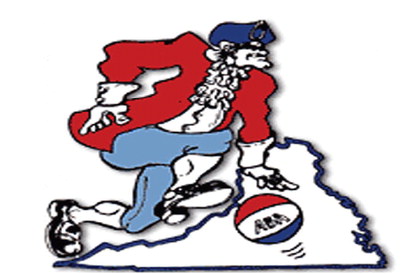Editorial
Virginia apparently doesn’t have what it takes to land a big-league sports team. Gov. Glenn Youngkin’s prospective deal to bring National Basketball Association and National Hockey League franchises to Northern Virginia came to a screeching halt last week when the mayor of Washington, D.C., and the franchises’ owner announced a deal of their own to keep the Wizards of the NBA and the Capitals of the NHL in the nation’s capital for many years into the future.
The only time Virginia has ever had a toptiered sports team was more than half-a-century ago when Julius Erving, Charlie Scott and other future stars of the National Basketball Association were bouncing red, white and blue basketballs for the Virginia Squires of the long-defunct American Basketball Association. In the early 1990s, then-Gov. Doug Wilder tried unsuccessfully to lure Washington, D.C.’s National Football League franchise to Northern Virginia but the deal collapsed in the face of local opposition and an uncooperative state legislature.
Youngkin’s failure to complete the sports arena deal could also be attributed to an uncooperative legislature – Democratic Party leaders in control of the General Assembly put up roadblocks – or to the Republican governor’s unwillingness to wheel and deal with the opposition party. Youngkin had various legislative bargaining chips at his disposal to make a deal with Democrats but, for whatever reason or reasons, chose not to use them.
As we suggested a few weeks ago, the governor could have offered to sign legislation creating a retail market for marijuana sales. Possession of small amounts of marijuana in Virginia is legal but the sale or purchase of the formerly illicit substance is not. Establishing a legal market would have eliminated a black market that leads to all sorts of criminal activity as well as assured the safety of such products being sold to Virginia consumers.
Instead, Youngkin chose to veto the cannabis market legislation, as he has dozens of other Democratic priority bills. Among those bills he vetoed were a number of gun safety measures, including one that would have banned assault weapons. Would Democrats have budged in their opposition to the sports arena deal had the governor softened his pro-gun stance? Perhaps.
The point is that the governor needs to be willing to give a little if he wants to get something in return from the opposition party. The art of the political deal involves give and take. Each side has to be willing to give up something in order to get what they want.
An unwillingness to compromise, unfortunately, could lead to another stalemate on approving a state budget, leaving localities, including local school districts, in the lurch as they seek to formulate budgets of their own in coming weeks. There are very real differences between what is in the governor’s proposed budget and the budget bill approved by the General Assembly.
Youngkin’s Board of Education announced last week the formation of and funding for two new “lab schools” – nontraditional schools run by colleges that are to serve middle- and highschool students. One of those schools is for Mountain Gateway Community College, with $3 million in state funding to support it. The only problem is that the lab schools appear to have been de-funded in the budget bill passed by the General Assembly.
The squabbling over how to spend state money has real consequences for those who depend on it. Localities and other interested parties are anxiously awaiting how such disputes play out.
We’re not going to get a big league sports team. Let’s hope we get a state budget in a timely manner.

THE VIRGINIA SQUIRES of the long-defunct American Basketball Association dribbled red, white and blues basketballs at several different arenas around the commonwealth, including the Roanoke Civic Center, in the early 1970s.
.jpg)


